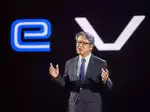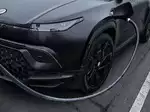Explained: Trademark dispute between Mahindra and IndiGo over ‘6E’
Indigo argues that "6E" has been a central part of its brand identity for the last 18 years and features prominently in services such as 6E Prime and 6E Flex, with priority check-in and flexible bookings aimed at customer-centric options. It states that Mahindra's use of "6E" could dilute IndiGo's trademark and recognition and extensive goodwill built painstakingly over the years.
It argued that:
"Any unauthorised use of the "6E" mark, whether standalone or in any form, constitutes an infringement of IndiGo's rights, reputation, and goodwill. IndiGo is committed to taking all necessary and appropriate steps to safeguard its intellectual property and brand identity."
On the other hand, Mahindra argues that its trademark BE 6e, which stands for an electric SUV in Class 12 (vehicles), is quite distinct from the airline services "6E" run by IndiGo. It argues that there is no likelihood of confusion especially given the clear contrast between industries and a recognisably different appearance for trademarks.
The matter was listed before Justice Amit Bansal of Delhi High Court which he had then recused himself from hearing. The matter is now listed to come up on December 9, 2024 before a new bench. IndiGo has also sought an interim injunction restraining Mahindra from using 6E in any manner, shape or form. At the same time, Mahindra on Tuesday stated that the company is presently engaged in talks with Indigo in order to reach an amicable resolution over the matter of a trademark dispute related to use of "6E" by its all-new electric model.
Mahindra said, "The Company has been transparently disclosing the material litigations on the Company to the Stock Exchanges and will continue to do so in compliance with the Listing Regulations."
IndiGo has faced multiple trademark disputes in the past with automobile manufacturers. Tata Motors, in 2015, had opposed the airline name saying it was similar to its sedan, "Indigo." Likewise, Go Holdings had in 2016 sued IndiGo over the use of the prefix "Go," but in that case the dispute pertained to different elements of branding.
What is a trademark?
A trademark can be a logo, design of any sort, word, phrase or group of words that identifies the goods or services of one enterprise from others. Under the Trademarks Act, 1999, a trademark when registered confers exclusive rights on the registered owner. The Controller General of Patents, Designs, and Trademarks manages registration of the trademarks.
Trademarks are for a period of 10 years and are renewable for an unlimited number of successive 10-year periods.
What is a class under trademark law?
In India, a total of 45 unique classes value for trademarks is available for registration. Class is just a category into which goods or service fall for the purpose of trademark registration. These classes fall under a system known as the Nice Classification (NCL), which is part of an agreement that was established in Nice (France) and is uniform and internationally compliant. Classes 1–34 deal with different goods such as chemicals, clothing, vehicles, and pharmaceuticals. Classes 35 – 45 are centered on services (e.g., advertising, legal services, transport).
Trademark registrations are categorised into classes so that when a trademark is sought to be registered, it is categorically identified as belonging to a segment of different goods or services that a registered trademark is likely to represent.
IndiGo '6E' has also been registered in various classes such as Class 9 (advertising) and Class 39 (transport).
Mahindra had applied for the BE 6e trademark under Class 12 (motor vehicles and components) ahead of the launch of the brand's electric SUV on November 26, 2023. The Ministry of Commerce and Industry granted this approval on November 25, 2023.
Can a trademark be protected against use in a different product class?
In certain circumstances yes, a trademark can be protected against use by another class of product. The Trademarks Act permits coexistence of similar marks in different classes; however certain exceptions do exist with respect to cross class protection. Here's how trademark infringement works across another class product:
WELL-KNOWN TRADEMARKS: A trademark can be termed as "well-known trademark" under Section 2(zg) of the Trademarks Act if the trademark has acquired distinctiveness and goodwill over a period of time. Such trademarks are protected in all classes and in respect of unrelated goods or services. For example, "Apple," known for electronics, cannot be used for unrelated goods like clothing or furniture without risking a claim of infringement.
DECEPTIVE SIMILARITY: Additionally, according to Section 29 of the Trademarks Act, a mark that may be deceptively similar to a trademark in another class and is expected to result in confusion can be considered asinfringement. Court will assess whether a similarity might confuse consumers about a connection or common source between the two trademarks, irrespective of the classes they represent.
DISHONEST ADOPTION: The courts will refuse an adoption by any subsequent adopter, even in respect of different goods, where that adopter is shown to have acted dishonestly, with the intention of taking advantage of the goodwill of an established mark. If, say, IndiGo could prove malice on the part of Mahindra to be riding on the goodwill of IndiGo, the latter could prevent the former from using "6E" for vehicles, at least.
ASSOCIATED MARKETS AND OVERLAPPING CONSUMER BASE: If the goods or services in the different classes are related, or if the overlap of consumers is shown, there is a greater chance of infringement. For example, a mark used for vehicles (Class 12) and one for transport services (Class 39) might overlap, as both target the mobility sector.
In Tata SIA Airlines Limited vs Vistara Home Appliances Private Limited & Ors, the Delhi High Court held that the adoption of "Vistara" by a home appliances company was dishonest even if the goods were in different classes. The court held that class distinction is not protecting a trademark, if the adoption is dishonest or it causes confusion.
What is an injunction?
An injunction is a time-sensitive relief that can be characterised as a court order requiring a party to halt certain conduct, which is claimed to be infringing on certain rights. Interim injunctions are granted by courts under Order 39 rules 1 & 2 of the Code of Civil Procedure, 1908 to prevent another party from using the trademark.
However, getting an injunction is not a slam dunk. To have any such relief , the seeking party has to establish that they have "standing," which means that there are sufficient grounds (e.g., showing of wrongful use and/or confusion by the other's party actions) to allow relief. If the court determines that the requesting party has a weak case or lacks evidence, it can deny the request for an injunction.
(Disclaimer: Rajesh Kumar is a fourth-year student at the National Law University, Delhi. Views are personal.)

